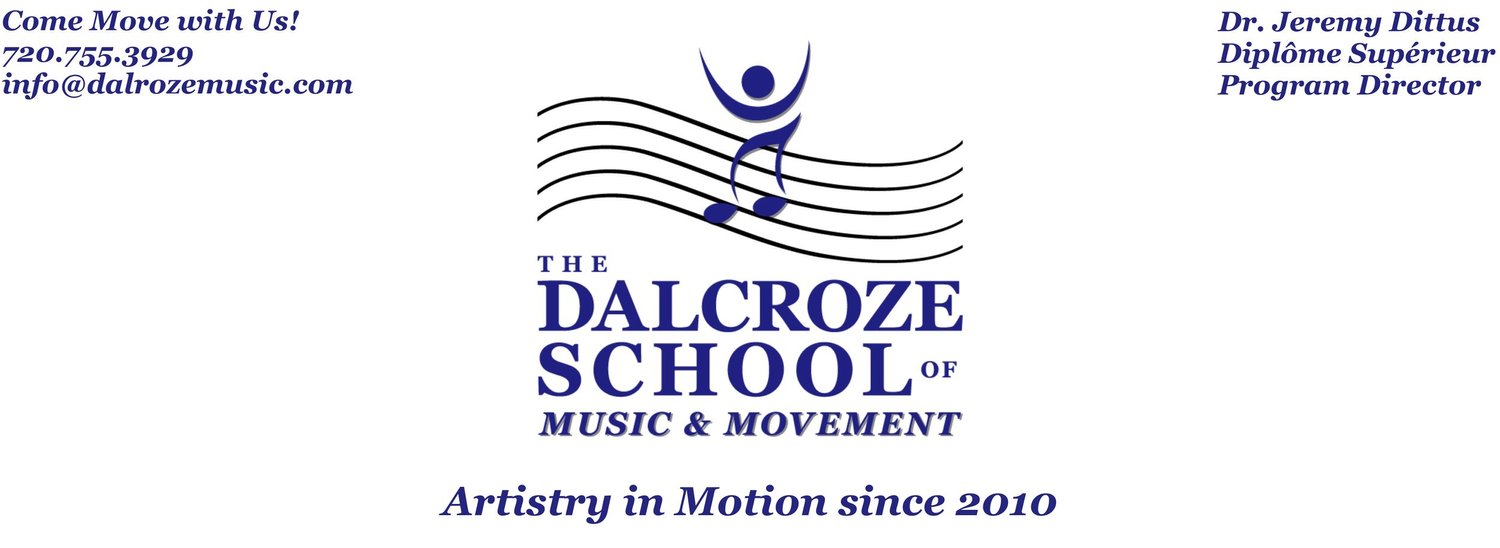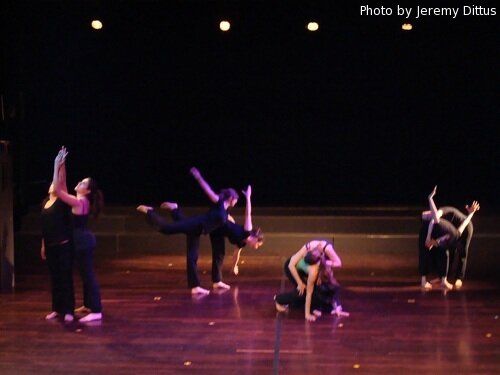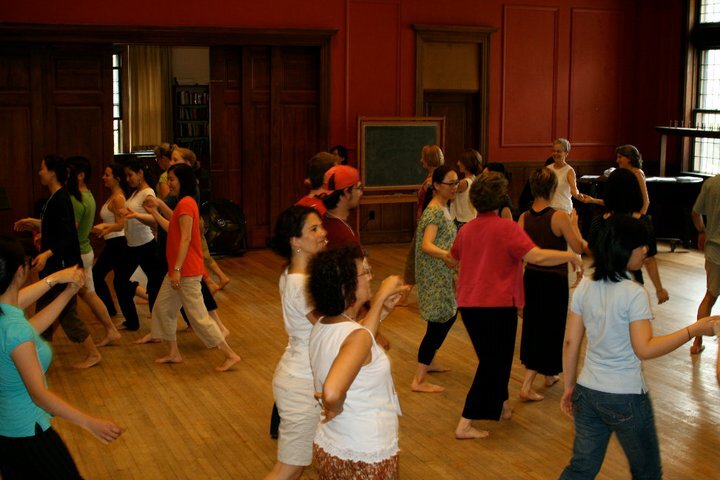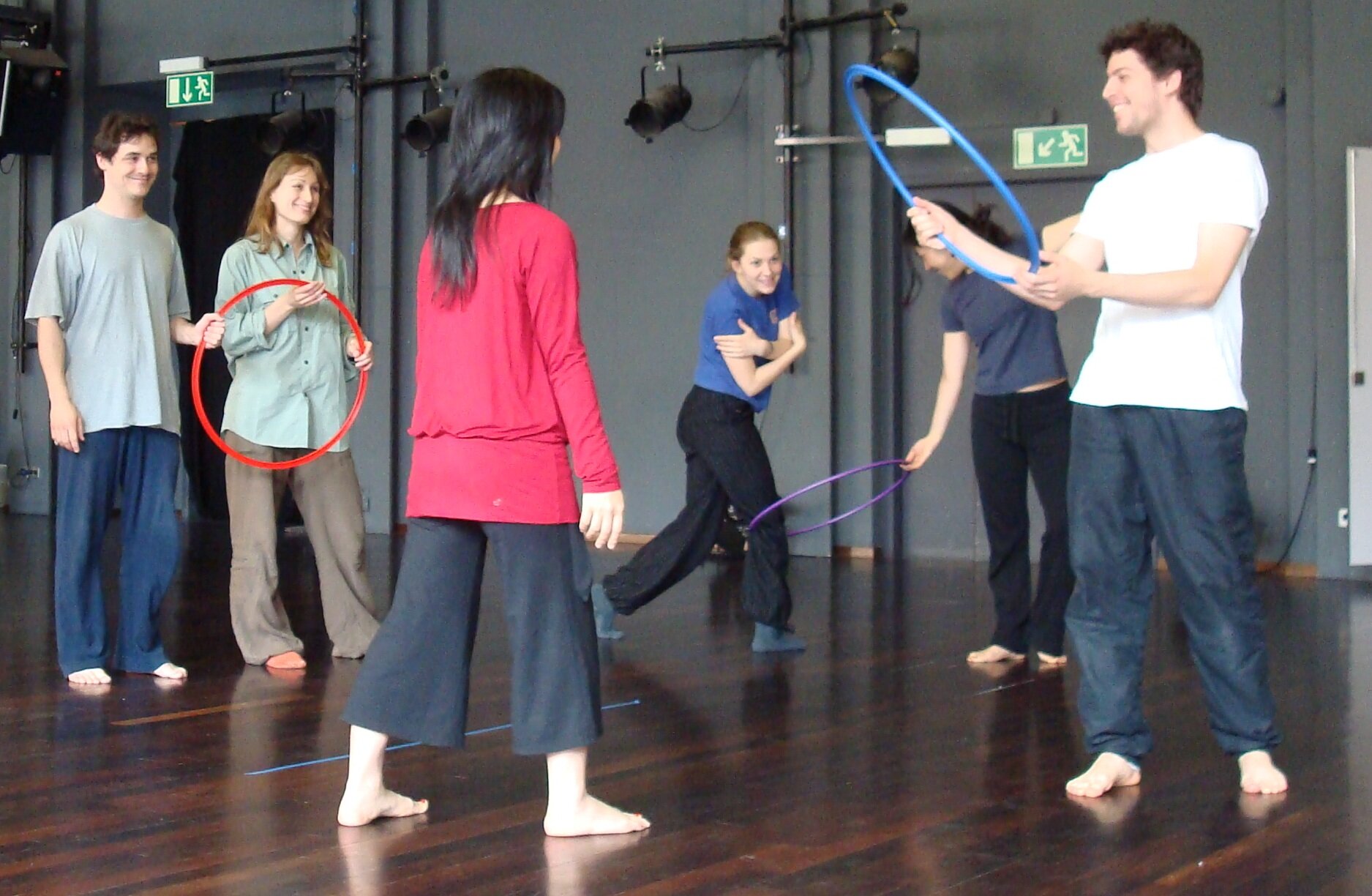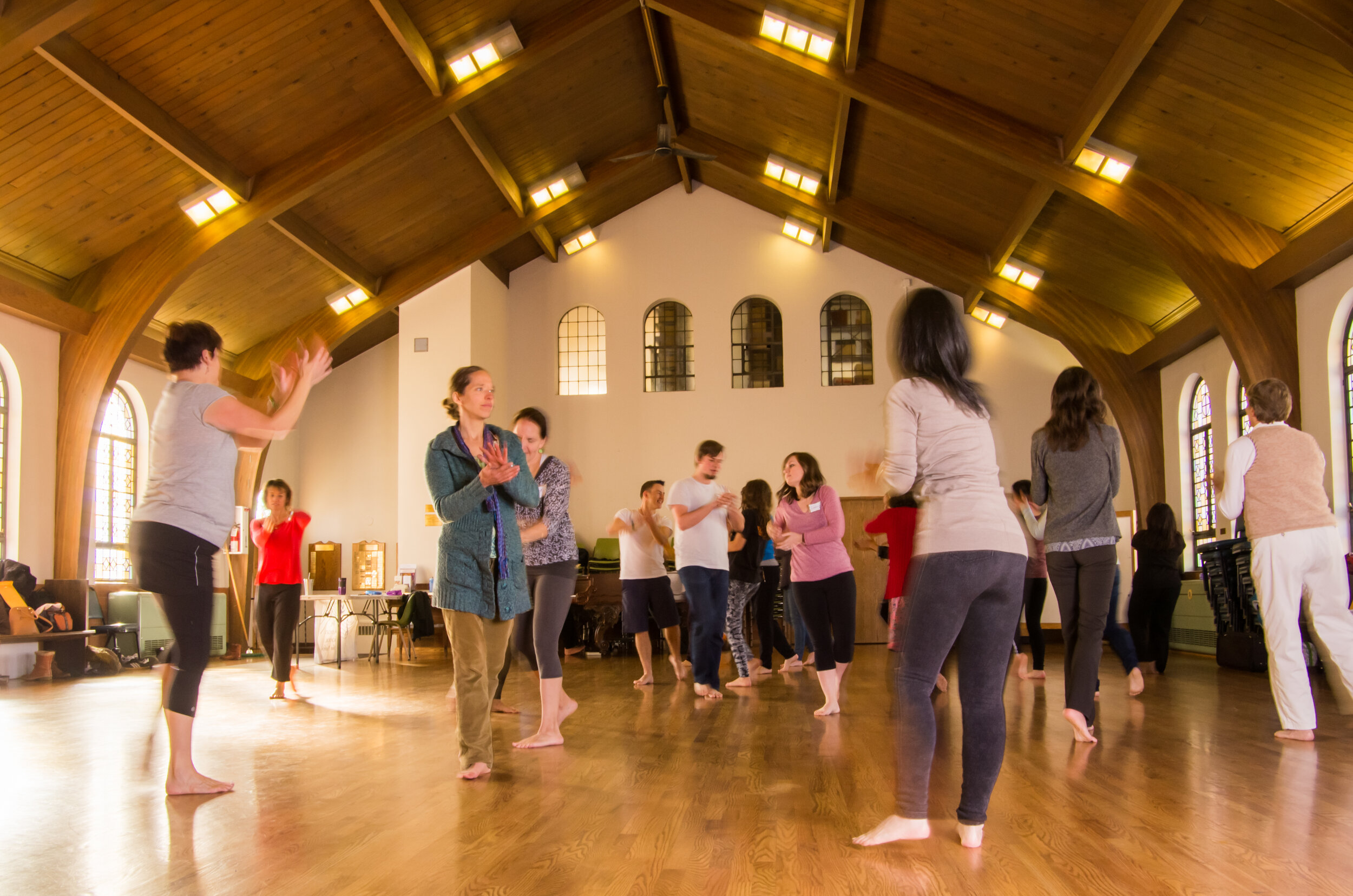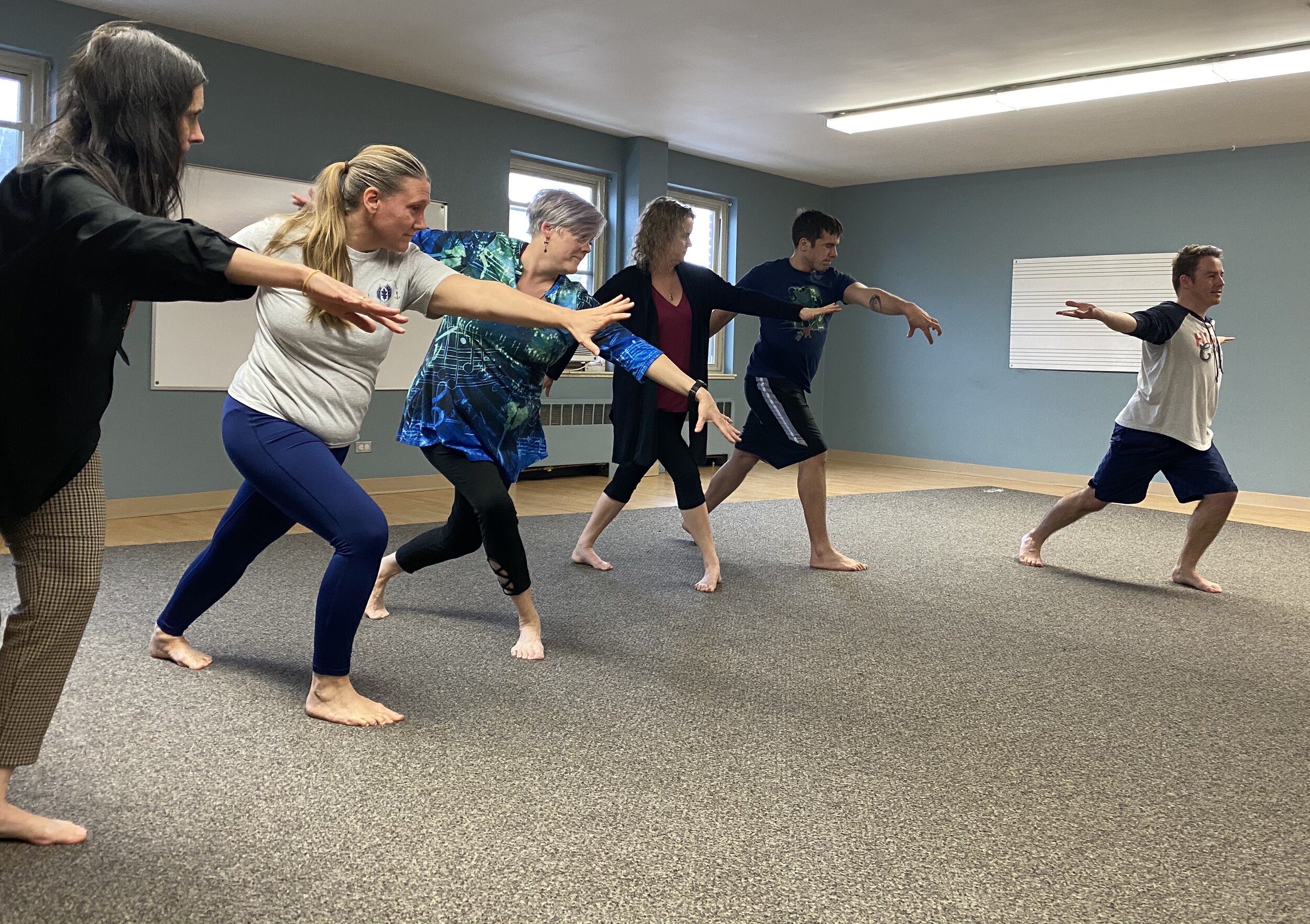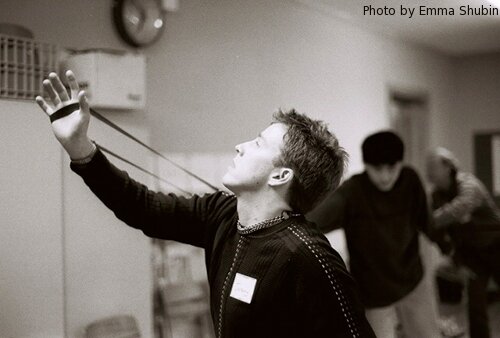Professional Studies Program
Dallas and Virtual Learning
The Dalcroze School of Music and Movement offers professional teacher training and development for adults who are looking to further their understanding of music and movement on a deeper level and for those interested in pursuing the internationally recognized Dalcroze Professional Certificate or Dalcroze License. The profound benefits of Dalcroze Education are diverse for both musicians and dancers.
The Dalcroze School of Music and Movement is one of the only authorized Dalcroze teacher-training centers west of Pittsburgh . We offer a clear, detailed path to Dalcroze Certification and/or Licensure. For more information, please visit our DSM Student Handbook page.
Special features of our program include:
A focus on artistry and accessibility that produces Dalcroze educators who are able to improve their own musicianship, performance, and teaching. As a result of excellent training, students will be able to reach their students in new and profound ways while improving their own musicianship and performance practice.
World-class instruction with excellent facilities at the Suzuki Music Institute of Dallas
Licensure and Pre-Diplôme Courses that enable you to pursue the internationally recognized Dalcroze License and/or work towards the entrance exams for the Diplôme Supérieur (offered in Geneva, Switzerland).
A curriculum written with you, our student, in mind. Evaluations are scheduled when you are ready; you can take as much time as you need to prepare in order to do your best.
We use state-of-the-art technology, including camera's, flat screen monitors, and interactive software, such as Zoom.
Long-distance study options , including lessons via Zoom and weekend workshops.
Minimum length of study for the Dalcroze Professional Certificate is 2 academic years virtually or in person and 3 summers at the Dalcroze Academy in person in Dallas.
Minimum length of study for the Dalcroze License is 2 acadmic years virtually or in person and 3 summers at the Dalcroze Academy in person in Dallas.
Each person’s Dalcroze journey is unique; we tailor our program for our students!
One of the only authorized Dalcroze teacher-training centers west of Pittsburgh, it offers a clear, detailed path to Dalcroze Certification and/or Licensure. (See the student handbook on the right for more information.)
Special workshops with some of the finest Dalcroze teachers in the world.Special features of the program include:
Michael Joviala
Françoise Lombard
Stephen Moore
Fumi Nakayama
Stephen Neely
Hélène Nicolet
Dawn Pratson
Lisa Parker
Jack Stevenson
Ruth Alperson
Bill Bauer
Monica Dale
Anne Farber
Mary Dobrea-Grindahl
Bonnie Draina
Lauren Hodgson
Eiko Ishizuka
Mimi Hsu
Lessons, Tuition, Pedagogy, and Examinations
Standard tuition covers weekly lessons in Eurhythmics and Pedagogy along with Improvisation, Solfège, and Class Observations.
Students in group lesson receive lessons in Improvisation/Solfège per week. Students are grouped by level based on student and faculty availability. The time is dependent on the number of students in the lesson.
2 students 60-75 minutes
3 students 75-90 minutes
4 students 90-105 minutes
5 students 105-120 minutes
These small group lessons in Solfège and improvisation will take place at t time mutually agreeable to students and faculty.
Cost: $1950 per Academic Year (28 weeks)
Students in private lessons receive one hour of Improvisation/Solfège per week. Cost: $2600 per Academic Year (28 weeks)
In addition to Solfège/Improvisation lessons, all students receive lessons in Eurhythmics and Pedagogy, on select Sundays from 5-7:30. This is included in their Tuition. See the adult calendar for specific dates.
Sunday Eurhythmics and Pedagogy classes are filmed for all students to view at their convenience.
Students who live too far from the school to attend in person may enroll during the academic year and participate via Zoom. Typically, all students attend the summer Dalcroze Academy in person at each level.
Pedagogy observations along with student teaching and mentoring are included in full tuition costs; additionally there are over 300 hours of recorded lessons with students of all ages and levels for students to use for observation and pedagogy.
Students at Levels 2, 3, 4, and 5 are required to attend, observe, and participate in at least one weekly children's class throughout the academic year, either in person, through video, or through Skype.
For students who are in-person, this can be done using ongoing children's classes at the Dalcroze School of the Rockies and this can count for their practicum teaching (actual practice teaching).
Online professional students students will need to create their own groups of students to use for their practicum teaching.
All students will need to create videos of their teaching and submit multiple videos for review, mentorship, and feedback from Dalcroze pedagogues. Part of the learning process is to take the feedback offered by their mentors and incorporate it into the next video submissions until the student demonstrates proficiency and artistry in Dalcroze pedagogy.
Individual mentoring of pedagogy students is not included in tuition. Students pay individual teachers directly for mentoring during the practicum process.
For the actual pedagogy exams, students must be approved by the director to submit videos or teach a live class for evaluation, which means that they must have demonstrated their skills as a Dalcroze expert (either live or by video) to at least 2-3 different Licensed or Diplômed Dalcroze teachers with positive feedback and approval.
Personal Checkpoint Observations and Exams
When both the student and teacher feel that a Checkpoint Observation or Exam is appropriate, then the student must schedule this with the class instructor.
It is recommended that the evaluation be held outside of class time, especially for any course held as a group. Checkpoint Observations and Exams are not included in tuition
Cost: Since each level requires a different number of jury members, the cost changes for each exam level. Level 1 requires one jury member; level 2 requires 2 jury members, and levels 3-5 require 3 jury members. Students will receive valuable written feedback for every evaluation by each faculty member so that they can track their progress throughout their training. These exams are not included in the Dalcroze Academy tuition.
Level 1: $35 per evaluation in Eurhythmics, Solfège, or Improvisation
Level 2: $70 per evaluation in Eurhythmics, Solfège, Improvisation, or Pedagogy
Level 3: $105 per evaluation in Eurhythmics, Solfège, Improvisation, or Pedagogy
Level 4: $105 per evaluation in Eurhythmics, Solfège, Improvisation, Plastique Animée, or Pedagogy
Level 5: $105 per evaluation in Eurhythmics, Solfège, Improvisation, Plastique Animée, or Pedagogy
Questions
If you have any questions, if you would like to arrange for an audition into full-time admission to the program, or if you would like to register for part-time study of one or more of the branches (Dalcroze Eurhythmics, Solfège, or Improvisation) please contact us.
Dalcroze Eurhythmics: Music in Motion!
“Dalcroze training opens my hearing sensitivity for harmony. Transposing keys and improvising tunes and harmonies is more fluent now. Eurythmics enable me to feel music and catch sounds, not just with my ears, but with my body. My eyes and ears are opened to care for people and express love and joy because I, myself, am opened up!”
The Dalcroze method has been given new life with Jeremy Dittus and DSM. A gifted teacher makes all the difference in any learning and Jeremy is that rare teacher who inspires and motivates students at all levels of music-making. My own experience began during a sabbatical as a Professor of Voice from the University of Michigan. I consider myself a good sightreader with a very good sense of rhythm but Jeremy’s classes challenged me to a degree that changed my whole musical outlook. I was amazed and moved to witness the vibrant atmosphere in his classrooms, full of laughter and expectancy, made possible by his beautifully planned lessons and superlative improvisatory piano skills. His welcoming attitude and enthusiasm for learning reaches and motivates students at all levels, from pre-schoolers to experienced teachers working on advanced Dalcroze degrees. Important to note is the pure JOY present in the best Dalcroze classes. Jeremy personifies that enthusiasm and attitude of play that makes learning at once easy and challenging and leaves the students eager for more. When I am asked by parents of music students to recommend a way to enrich their children’s learning, I answer, “Dalcroze, taught by a really good teacher, like Jeremy Dittus.”
-Carmen Pelton, Emeritus Professor of Voice, University of Michigan School of Music, Theater, and Dance
If you have any questions, would like to arrange for an audition into full-time admission to the program, or would like to register for part-time study in one or more of our branches (Dalcroze Eurhythmics, Solfège, or Improvisation). Contact us below!
“This is a wonderful school producing fine musicians and educators.”
Dynamic Instruction Gives Dynamic Results!
“Fantastic teachers and fantastic programs of very high quality!”
“It is no exaggeration to say that the workshop changed my life. I found Jeremy to be an astounding teacher - enthusiastic, full of boundless energy and high expectations, and utterly brilliant. The Dalcroze method itself seemed to be exactly what I had always been looking for but never knew existed. The Dalcroze method is about experiencing music through the body: the body itself is the instrument as the student learns to demonstrate both expressivity and analysis of the music in real time. The music itself (improvised by the teacher) is the motivator, stimulator, and regulator in the classroom as the students discover themselves the purpose of the lesson while experiencing it in their bodies first (verbal analysis comes last).”
